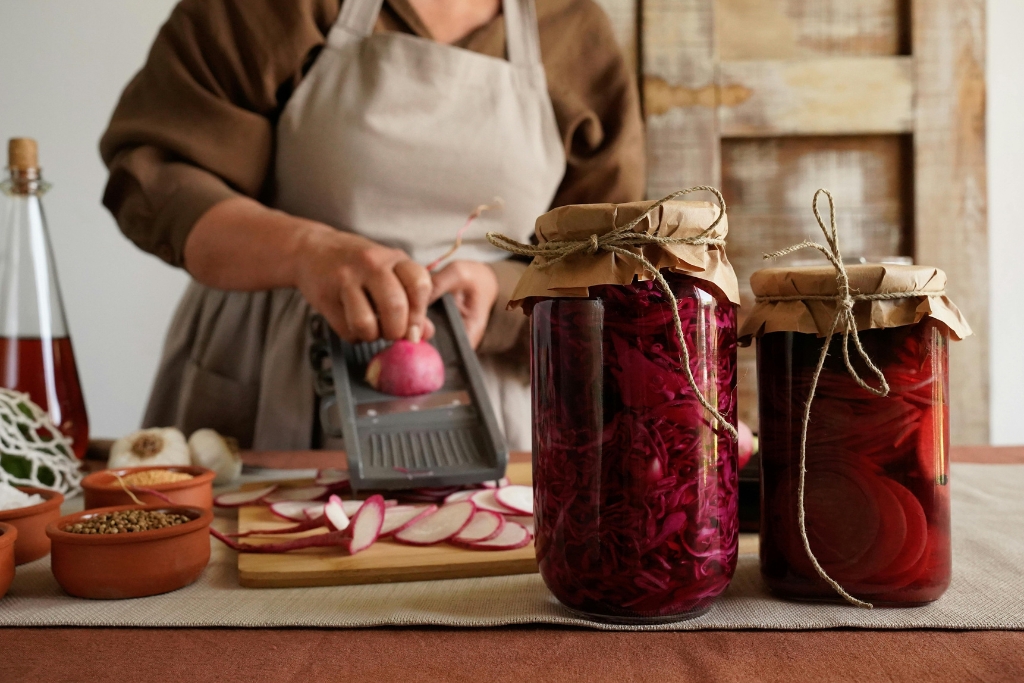
Sustainable weight loss
If you’re tired of weight loss advice that sounds more like a motivational poster than something actually helpful, you’re not alone. While there’s no one-size-fits-all when it comes to losing weight, a few science-backed habits can actually shift the scale in the right direction without turning your life upside down. Think of these not as rigid rules, but more like smart tweaks you can work into your everyday routine.
- Spice Up Your Meals to Eat Less Without Trying
Turns out, adding a little heat to your plate does more than wake up your taste buds. Research shows that spicy food can actually help curb how much you eat. When your meal has that kick—say from chili peppers or hot sauce—you naturally slow down while eating. And slowing down gives your body time to register fullness.
This is key, because your brain needs about 20 minutes to get the signal that you’re full. The more time you give it, the less likely you are to overeat. Plus, eating spicy meals makes you sip more water, take longer pauses, and chew more thoroughly—all things that support mindful eating and sustainable weight loss.
- Add Fermented Foods to Support Your Gut
Your gut health has a big effect on your weight, even if you don’t know it. Kefir, kimchi, sauerkraut, and live yogurt are all fermented foods that help make your microbiome more diverse and balanced. That matters because the bacteria in your gut can affect everything from how hungry you are to how well you burn calories.
Research, especially from Korea, shows that people who eat a moderate amount of fermented foods regularly, especially kimchi, are less likely to be obese. That’s likely due to the combo of fiber, polyphenols, and live bacteria working together to reduce inflammation and regulate your metabolism.
If you’re on GLP-1 meds like Ozempic or Wegovy, this is especially useful. Fermented foods can help with managing nutrient deficiency on Ozempic/Wegovy and may even support gut balance post-medication.
- Fill Up on Fiber to Feel Full Longer
Let’s talk about fiber—one of the most underrated tools in your kitchen. Most adults don’t get nearly enough (18g on average vs. the recommended 30g), yet it’s a key player in satiety and appetite regulation.
Here’s what makes fiber so effective:
- It slows down digestion, keeping you fuller for longer.
- It supports the release of satiety hormones like GLP-1 and PYY.
- It feeds good gut bacteria, supporting metabolism and inflammation control.
Beans, lentils, oats, broccoli and Brussels sprouts, and fruits like raspberries and pears are all high in fiber. If you’re on a Ketovore or Carnivore diet, you might not be getting enough fiber. You might want to change your hormone-balancing diet for perimenopause or your intermittent fasting for women over 40 in the UK.

Health & wellness guide
- Don’t Fear Healthy Fats
You might think that eating foods high in calories, like nuts or olive oil, would hurt your goals, but that’s not always the case. People who eat a small handful of nuts every day tend to weigh less and feel fuller after meals. That’s because nuts are full of protein, fiber, and healthy fats that slow down digestion and make you want to snack less.
Extra virgin olive oil is the same way. Obesity rates are lower in Mediterranean diets, which include a lot of EVOO. EVOO has monounsaturated fats and polyphenols that help control metabolism, make you feel full, and lower inflammation.
Just watch how much you eat. A little olive oil or a handful of nuts can go a long way without adding too many calories.
- Eat Without Screens to Stay in Control
We all do it: eating while watching TV or scrolling through our phones. But eating while distracted often makes you eat too much. When you don’t pay attention to your food, you eat faster, chew less, and don’t notice when your body is full.
Instead of that, try this: turn off the TV and put your phone down. Focus on your plate. Don’t rush. Notice the flavors. Take your time chewing. You can tell when you’ve had enough by doing small things like putting your fork down between bites. It’s one of the easiest things you can do to help yourself lose weight in a healthy way without following a strict plan.
It’s About Working With Your Body, Not Against It
You don’t always have to cut out whole food groups or follow complicated plans to lose weight. Sometimes, the smallest changes, like eating foods that make you feel full, choosing drinks with less alcohol, or paying attention to clear food labels, can have the biggest effects over time. These habits will help you better understand what your body is trying to tell you, whether you’re dealing with changes after using GLP-1 or making changes after menopause. Start with one or two and make them a regular part of your life. The results will come naturally.








